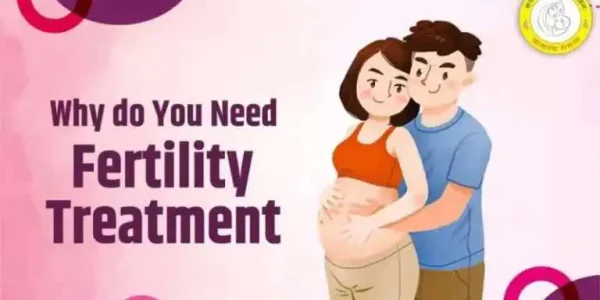Why do You Need IVF Treatment?

The decision to start a family should bring joy to couples and individuals. However, if there are fertility issues, it cannot be easy. If you struggle to get pregnant after many attempts, it may be worth seeking fertility assistance from a specialist. How can you know if IVF treatment and professionals help suit your situation?
Infertility occurs when a couple cannot conceive despite regular unprotected sexual relations. One in seven couples might have trouble conceiving. If they have regular, unprotected sex (every two or three days), 84% of couples will be able to conceive naturally in a year.
If a couple has tried to conceive for over three years with no success, the chances of getting pregnant naturally in the next year are 1 in 4.
IVF Treatment: Who is it for?
Infertility refers to the inability to conceive after one year of regular intercourse. Fertile women under 36 years old have a 16-18% monthly pregnancy rate and a 10-12% chance of having a child from this pregnancy. Around 70% of women will conceive within a year.
It is important to remember that 30% of women unable or unwilling to conceive naturally, even if there is no apparent reason, are still in this category. infertility is often mistakenly confused with reduced fertility.
Women who have suffered from damaged fallopian tubes or a patent can experience problems with their sperm and egg journeys to their destinations. Although it might be difficult to conceive in these cases, it is possible to delay pregnancy.
Before knowing who needs IVF treatment, you must first know about IVF. In vitro fertilization, also known as IVF, involves fertilizing an egg outside the womb and then re-implanting it. It is important to remember that IVF is not a cure for infertility.
IVF Treatment is becoming a popular treatment for infertility. Contrary to popular belief, it is less successful than other options. It is not a cure for infertility.
IVF Patients with Certain Conditions
1. Advanced Age: As the female progress, her egg reserve decreases. In this situation, she has fewer eggs to wait for a baby to occur.
2. Endometriosis: A woman with severe endometriosis should consider IVF to get pregnant.
3. Fallopian Tube: If the fallopian tubes are blocked or absent in a female, then an embryo cannot form in the tube. The IVF technique is an effective way to get pregnant.
4. Ovulation problems: An IVF procedure is recommended if a woman has trouble ovulating (e.g., polycystic ovarian syndrome).
5. Mucus problems: some females’ cervical mucus can have anti-sperm properties. This makes it difficult to conceive. IVF may be possible in these cases.
6. Autoimmune disease: If the patient has an autoimmune condition, their antibodies could kill the egg, sperm, or embryo. IVF is the best option in this situation.
7. Low Sperm count: If the male partner has a meager sperm count, surgical sperm retrieval procedures can extract sperm. IVF can also be performed.
8. Low Sperm Motility: If the sperm do not move enough, fertilization can be done using intracytoplasmic sperm injection (ICSI).
9. Low Sperm Count: If the sperms have low quality, an intracytoplasmic (or morphologically selective sperm injection) procedure is used to select the best sperms for fertilization.
10. Unexplained Infertility: Nearly 20% of infertile couples have unanswered reasons. IVF may help in these cases.
A Complete Guide to IVF treatments
A patient’s journey to consider fertility options can be a difficult one. You must choose a clinic that provides the best care possible. It is also essential to verify the references and credentials of the treating physician and his staff.
Highly respected fertility specialist doctor, Dr. Rashmi Prasad, has handled various cases and achieved outstanding results.
Read the next article: Improve Your Fertility Levels
IVF Treatment Success Rate
India has had much success with IVF and surrogacy. Healthy conception is one of the best fertility treatments for couples, and it has a success rate of 75-90%. This is something you would love to know.
We offer the best fertility treatments for couples, protecting their health and offering fertility treatment for couples planning to have babies. We are a well-respected fertility center with decades of experience delivering healthy babies.
Conclusion
You can plan for your family now with the best IVF Center in Patna. This is a safe way to return home with your newborn and enjoy good health. This clinic is the best for you if you are looking for a place to plan for your biological baby.
FAQs
IVF treatment cost
Is IVF painful
IVF babies disadvantages
How many injections for IVF treatment
What are the 5 stages of IVF
Egg retrieval: Eggs are removed from the ovaries through a minor surgical procedure.
Fertilization: Eggs are combined with sperm in a laboratory dish to create embryos.
Embryo culture: Embryos are allowed to develop for a few days in a laboratory.
Embryo transfer: One or more embryos are transferred to the woman’s uterus.




